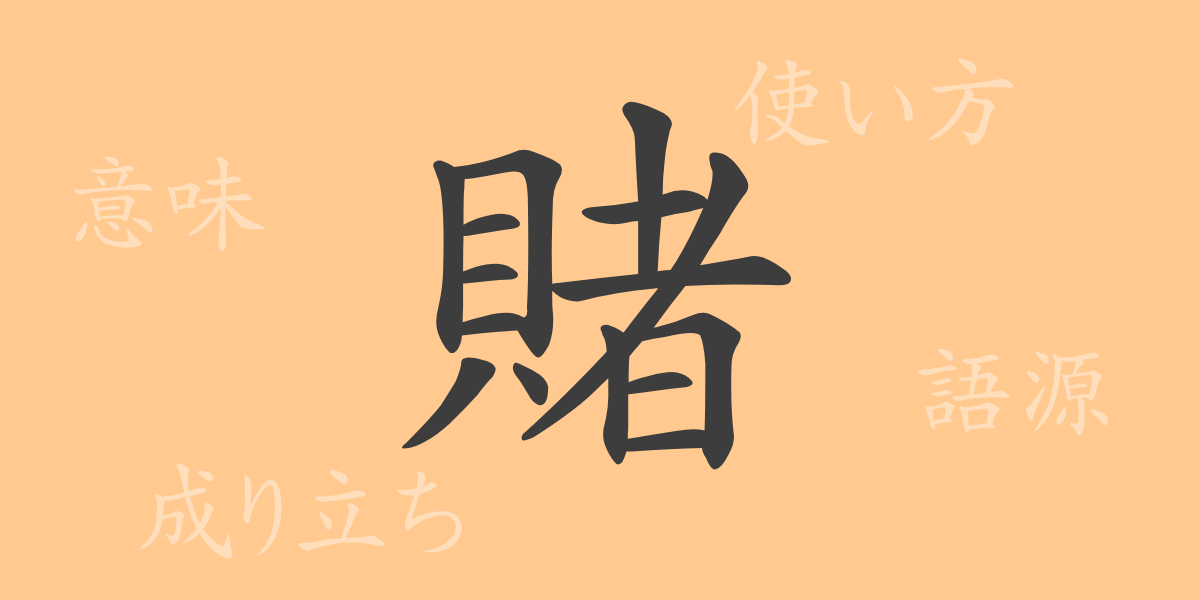The complexity of Japanese characters deeply embodies the richness of Japanese language and culture. Among the commonly used kanji, ‘賭(ト)’ stands out, intricately tied to our daily lives. This article delves into the origins, meanings, and contemporary usage of ‘賭’, exploring the narratives that begin with gambling and the idioms rooted in Japanese life that this single character encompasses.
Origins of ‘賭(ト)’
The kanji ‘賭’ originated in ancient China. Initially used to denote the act of staking property or goods, it has come to symbolize transactions involving betting. Its radical, ‘貝’, associated with money and value, highlights its use in contexts involving financial stakes, reflecting its origins in transactions where shells were used as currency, hinting at the gambling elements involved.
Meaning and Usage of ‘賭(ト)’
‘賭’ generally refers to the act of gambling, where money or items are wagered and distributed based on outcomes. It is also used metaphorically to express investments or expectations in uncertain endeavors. Although gambling is strictly regulated in Japan, leading to its often negative connotations, ‘賭’ is versatile in literature and everyday conversation.
Readings, Stroke Count, and Radical of ‘賭(ト)’
Understanding ‘賭’ in Japanese involves familiarizing oneself with its readings and structure:
- Readings: On’yomi ‘ト’, Kun’yomi ‘かける’
- Stroke count: 16
- Radical: 貝 (relating to money or currency)
Phrases, Idioms, and Proverbs Using ‘賭(ト)’
‘賭’ plays a significant role in various Japanese idioms and proverbs:
- 賭け事(かけごと): Games or contests where money or items are wagered.
- 賭け麻雀(かけまーじゃん): Playing mahjong with monetary stakes.
- 命を賭ける(いのちをかける): To risk one’s life for a cause.
- 全財産を賭ける(ぜんざいさんをかける): To stake all one’s possessions for a purpose.
These expressions reflect the values and culture of Japan, serving as a means to convey traditions and philosophies through language.
Conclusion on ‘賭(ト)’
The kanji ‘賭’ is deeply ingrained in Japanese life and culture, from its direct association with gambling to metaphorical uses involving life and business risks. Understanding the rich meanings and historical context of ‘賭’ can deepen our appreciation of the Japanese language’s complexity. As we weigh the risks and allure of betting, ‘賭’ continues to influence our daily decisions.

























